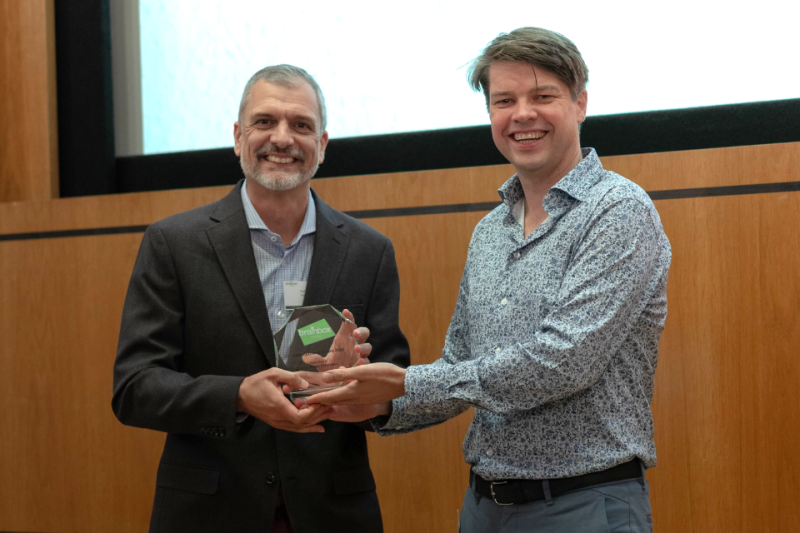
Angel Peterchev, PhD, professor in psychiatry and behavioral sciences, received the Brainbox Initiative’s 2024 John Rothwell Award. This annual award is given to one individual for “excellence in non-invasive brain stimulation research that stimulates further work at a higher scientific level.”
The award is named after John Rothwell, PhD, a distinguished British neurophysiologist and a pioneer of transcranial brain stimulation, currently an emeritus professor of human neurophysiology at University College London Queen Square Institute of Neurology. The awardee is selected by an international committee of noninvasive brain stimulation researchers.
Dr. Peterchev, a tenured faculty member of the Behavioral Medicine & Neurosciences Division, began his Duke Psychiatry & Behavioral Sciences faculty career in 2010 as an instructor. He also holds faculty appointments in neurosurgery, biomedical engineering, and electrical & computer engineering. Prior to coming to Duke, Dr. Peterchev held a faculty role in the Columbia University Department of Psychiatry.
Dr. Peterchev’s research focuses on the development, modeling, and application of transcranial brain stimulation technology. Transcranial brain stimulation involves non-invasive delivery of electromagnetic fields to shift neural activity in the brain and is widely used as a research tool and a therapeutic intervention in neurology and psychiatry. For example, transcranial magnetic stimulation (TMS) is FDA-cleared for the treatment of depression, anxiety, obsessive-compulsive disorder, smoking addiction, and migraines.
His lab develops and disseminates technology that enables researchers and clinicians to optimize TMS procedures by tuning and individualizing the stimulation parameters. One of Dr. Peterchev’s contributions is a TMS device that allows flexible control over the magnetic stimulus; this invention was commercialized and is currently used in labs around the world. His team also creates computer models of how transcranial stimulation evokes brain activity, providing insights in mechanisms and potential ways to enhance the stimulation precision.
Dr. Peterchev’s lab and collaborators deploy these devices and models in experimental studies to characterize and optimize the brain response to transcranial stimulation to enable more efficacious and safe interventions.